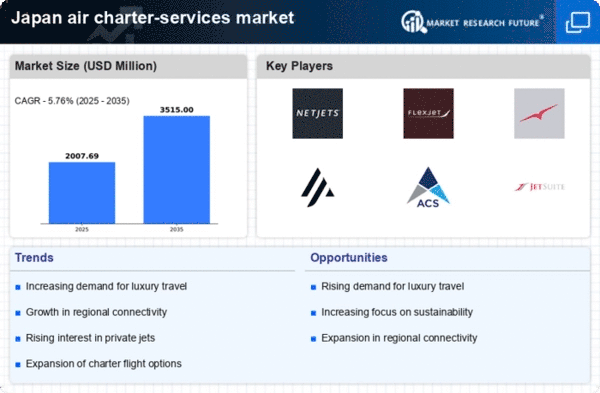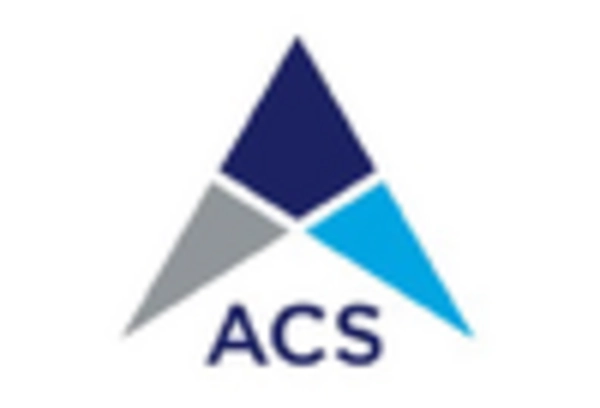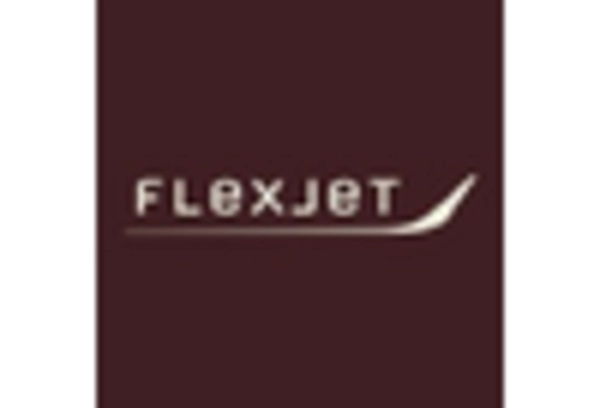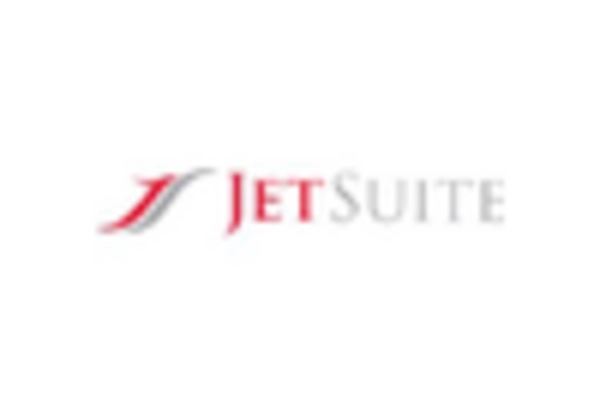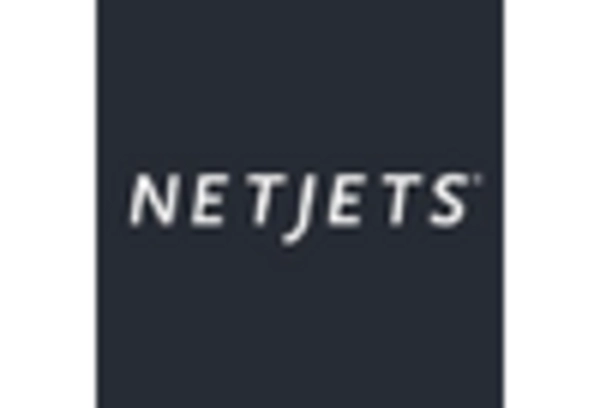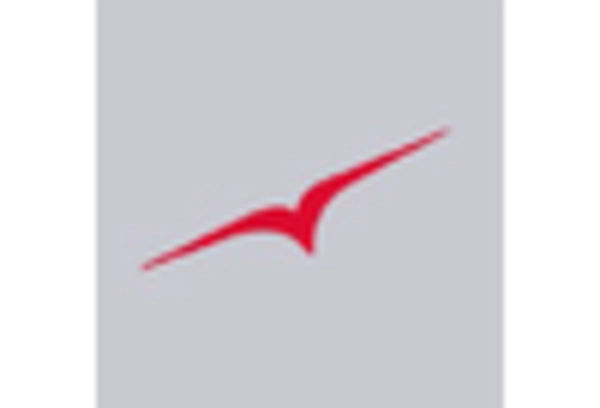Expansion of Tourism Sector
Japan's tourism sector is witnessing robust growth, which is positively impacting the air charter-services market. In 2025, the number of international tourists visiting Japan is expected to reach 40 million, driven by the country's rich cultural heritage and natural beauty. This influx of tourists creates a demand for personalized travel experiences, including chartered flights to popular destinations. The air charter-services market is likely to capitalize on this trend by offering bespoke travel packages that cater to the preferences of high-end tourists. Additionally, the rise of luxury travel segments, such as private jet charters, further supports this growth. As tourism continues to flourish, the air charter-services market is poised to play a crucial role in facilitating seamless travel experiences for both domestic and international visitors.
Increasing Business Travel Activities
The air charter-services market in Japan is experiencing a notable surge in demand due to the increasing business travel activities. As companies expand their operations and seek to establish international connections, the need for efficient and flexible travel solutions becomes paramount. In 2025, business travel is projected to account for approximately 60% of the total air travel market in Japan. This trend indicates a growing reliance on air charter services, which offer tailored itineraries and direct access to remote locations. Furthermore, the ability to avoid congested commercial airports enhances productivity for corporate travelers. The air charter-services market is thus positioned to benefit significantly from this uptick in business travel, as organizations prioritize time efficiency and convenience in their travel arrangements.
Emergence of E-commerce and Logistics Needs
The rapid growth of e-commerce in Japan is driving demand for air charter services, particularly in the logistics sector. With online retail sales projected to exceed ¥20 trillion in 2025, businesses are increasingly seeking efficient transportation solutions to meet consumer expectations for fast delivery. The air charter-services market is well-positioned to address these logistics needs by providing expedited shipping options for time-sensitive goods. Companies are likely to leverage chartered flights to ensure that products reach customers quickly, especially in urban areas where demand is high. This trend not only enhances customer satisfaction but also allows businesses to maintain a competitive edge in the fast-paced e-commerce landscape. As a result, the air charter-services market is expected to see substantial growth driven by the logistics demands of the burgeoning e-commerce sector.
Rising Consumer Preference for Private Travel
There is a discernible shift in consumer preferences towards private travel options, which is significantly influencing the air charter-services market. As individuals and families seek more exclusive and personalized travel experiences, the demand for private charters is likely to rise. In 2025, it is estimated that the private jet segment will grow by approximately 15% in Japan, reflecting a broader trend towards luxury and comfort in travel. The air charter-services market is expected to benefit from this shift, as consumers prioritize privacy, convenience, and tailored services. This trend is particularly evident among affluent travelers who are willing to invest in premium travel experiences. Consequently, the air charter-services market is poised for growth as it adapts to the evolving preferences of the modern traveler.
Government Initiatives Supporting Aviation Growth
The Japanese government is actively promoting initiatives aimed at enhancing the aviation sector, which in turn supports the air charter-services market. Policies designed to improve airport infrastructure and streamline regulatory processes are likely to create a more favorable environment for air charter operations. In 2025, government investments in airport modernization are projected to exceed ¥500 billion, facilitating increased capacity and efficiency. These improvements may lead to reduced turnaround times for chartered flights, making them more appealing to businesses and travelers alike. Furthermore, the government's focus on boosting tourism and international business ties aligns with the objectives of the air charter-services market, potentially leading to increased demand for chartered flights as a viable travel option.


